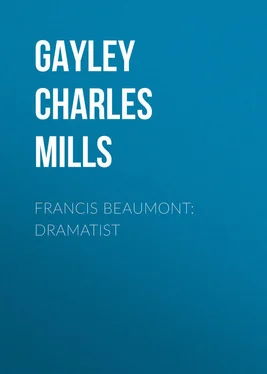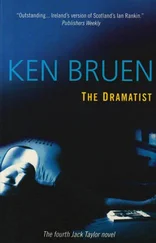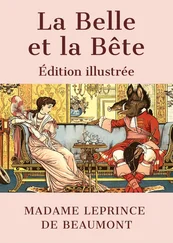Charles Gayley - Francis Beaumont - Dramatist
Здесь есть возможность читать онлайн «Charles Gayley - Francis Beaumont - Dramatist» — ознакомительный отрывок электронной книги совершенно бесплатно, а после прочтения отрывка купить полную версию. В некоторых случаях можно слушать аудио, скачать через торрент в формате fb2 и присутствует краткое содержание. Жанр: cinema_theatre, foreign_antique, foreign_prose, Биографии и Мемуары, на английском языке. Описание произведения, (предисловие) а так же отзывы посетителей доступны на портале библиотеки ЛибКат.
- Название:Francis Beaumont: Dramatist
- Автор:
- Жанр:
- Год:неизвестен
- ISBN:нет данных
- Рейтинг книги:5 / 5. Голосов: 1
-
Избранное:Добавить в избранное
- Отзывы:
-
Ваша оценка:
- 100
- 1
- 2
- 3
- 4
- 5
Francis Beaumont: Dramatist: краткое содержание, описание и аннотация
Предлагаем к чтению аннотацию, описание, краткое содержание или предисловие (зависит от того, что написал сам автор книги «Francis Beaumont: Dramatist»). Если вы не нашли необходимую информацию о книге — напишите в комментариях, мы постараемся отыскать её.
Francis Beaumont: Dramatist — читать онлайн ознакомительный отрывок
Ниже представлен текст книги, разбитый по страницам. Система сохранения места последней прочитанной страницы, позволяет с удобством читать онлайн бесплатно книгу «Francis Beaumont: Dramatist», без необходимости каждый раз заново искать на чём Вы остановились. Поставьте закладку, и сможете в любой момент перейти на страницу, на которой закончили чтение.
Интервал:
Закладка:
Just south of Charnwood Forest stood, in the day of John and Francis, the Manor House in Bradgate Park where Lady Jane Grey was born, and where she lived from 1549 to 1552 while she was being educated by her ambitious father and mother, the Marquis and Marchioness of Dorset, "to occupy the towering position they felt assured she would sooner or later be called to fill" – that of Protestant queen of England. Here it was that Roger Ascham, as he tells us in his Schoolmaster , after inquiring for the Lady Jane of the Marquis and his lady who were out hunting in Charnwood Forest, came upon the twelve-year old princess in her closet "reading the Phædon of Plato in Greek, with as much delight as gentlemen read the merry tales of Boccaccio." The grandmother of the young Beaumonts, who was still alive in 1578, may have lived long enough to take our Francis on her knee and tell him of the hopes her Protestant kinsmen of Ashby-de-la-Zouch had fixed upon the Lady Jane, and of how her cousin, the Earl, Francis of Huntingdon, had been one of those who in Royal Council in June 1553, abetted the Dukes of Northumberland and Suffolk in the scheme to secure the succession of Lady Jane to the throne, and how, with these dukes and the Archbishop of Canterbury, and other lords and gentlemen (among them a certain Sir John Baker of Sissinghurst, Kent, whose family later appears in this narrative), he had signed the "devise" in accordance with which Jane was proclaimed Queen. And the old lady would with bated breath tell him of the cruel fate of that nine-days' queen. Of how Francis of Huntingdon was sent to the Tower with Queen Jane, she also would tell. But perhaps not much of how he shortly made his peace with Queen Mary, hunted down the dead Jane's father, and brought him to the scaffold. And either their grandmother or their father, the Judge, could tell them of the night in 1569 on which their cousin, Henry, third Earl of Huntingdon, had entertained in the castle "rising on the very borders" of the forest to the east, Mary, Queen of Scots, when she was on her way to her captivity in the house of another connection of theirs, Henry Cavendish, at Tutbury in the county of Stafford, just east of them.
In the history of culture not only John and Francis, but the Beaumonts in general are illustrious. In various branches and for generations the poetic, scholarly, and artistic vein has persisted. John Beaumont's son and heir, the second Sir John, edited his father's poems, and lived to write memorial verses on Ben Jonson, and on Edward King, Milton's "Lycidas"; and another son, Francis, wrote verses. A relative and namesake of the dramatist's father, – afterwards Master of Charterhouse, – wrote an Epistle prefixed to Speght's Chaucer , 1598; and still another more distant relative, Dr. Joseph, Master of Peterhouse, and author of the epic allegory, Psyche , was one of the poetic imitators through whom Spenser's influence was conveyed to Milton. The Sir George Beaumont of Wordsworth's day to whom reference has already been made was celebrated by that poet both as artist and patron of art. And, according to Darley, 14 14 Works of B. and F. , XVI.
Lady Mary Wortley Montagu was of the race and maiden name of our dramatist's mother, Anne Pierrepoint. From which coincidence one may, if he will, argue poetic blood on that side of the family, too; or from Grosart's derivation of Jonathan Edwards from that family, polemic blood, as well.
The three sons of Justice Beaumont of Grace-Dieu were entered on February 4, 1597, at Broadgates Hall, now Pembroke, which at that time was one of the most flourishing and fashionable institutions in Oxford. These young gentlemen-commoners were evidently destined for the pursuit of the civil and common law, since, as Dyce informs us, their Hall was then the principal nursery for students of that discipline. But one cannot readily visualize young Frank, not yet thirteen, or his brother John, a year or so older, devoting laborious hours to the Corpus Juris in the library over the south aisle of St. Aldate's Church, or to their Euclid, Strabo, Aristotle, Cicero, Quintilian. We see them, more probably, slipping across St. Aldate's street to Wolsey's gateway of Christ Church, and through the, then unfinished, great quadrangle, past Wolsey's tower in the southeast corner, and, by what then served for the Broad Walk, to what now are called the Magdalen College School cricket grounds, and so to some well-moored boat on the flooded meadows by the Cherwell. And some days, they would have under arm or in pocket a tattered volume of Ovid, preferably in translation, – Turberville's Heroical Epistles , or Golding's rendering of the Metamorphoses , – or Painter's Palace of Pleasure , or Fenton's Tragical Discourses out of Bandello, dedicated to the sister of Sir Philip Sidney – Sir Philip, whose daughter young Francis should, one day, revere and celebrate in noble lines. Or they would have Harington's Orlando Furioso to wonder upon; or some cheap copy of Amadis or Palmerin to waken laughter. And, other days, fresh quartos of Tamburlaine and Edward II and Dido , or Kyd's Spanish Tragedy and Lyly's Gallathea , or Greene's Frier Bacon and James IV , or Shakespeare's Richard II , and Richard III , and Romeo and Juliet , and Love's Labour's Lost . These, with alternate shuddering and admiring, mirth or tears, to declaim and in imagination re-enact. And certainly there would be mellow afternoons when the Songs and Sonnettes known as Tottel's Miscellany and The Paradyse of Daynty Devises , with their poems of love and chivalry by Thomas, Lord Vaux, – of which they had often heard from their cousins of Harrowden, – and Chapman's completion of Hero and Leander or Shakespeare's Venus and Adonis , and Drayton's fantastic but graceful Endimion and Phoebe would hold them till the shadows were well aslant, and the candles began to wink them back to the Cardinal's quadrangle and the old refectory, beyond, of Broadgates Hall. For the Char and the boats were there then, and all these El Dorados of the mind were to be had in quarto or other form, and some of them were appearing first in print in the year when Frank and his brothers entered Oxford.
We may be sure, that many a time these brothers and sworn friends in literature, and Henry, too, loyal young Elizabethans, – and with them, perhaps, their cousin, Robert Pierrepoint, who was then at Oriel, – strolled northwest from the Cherwell toward Yarnton, and then Woodstock with its wooded slopes, to see the island where Queen Elizabeth, when but princess, had been imprisoned for a twelvemonth, and, hearing a milk-maid singing, had sighed, "She would she were a milkmaid as she was"; and that they took note of fair Rosamund's well and bower, too. They may have tramped or ridden onward north to Banbury, and got there at the same cakeshop in Parsons Street the same cakes we get now. Or, some happy Michaelmas, they would have walked toward the fertile Vale of Evesham, north, first, toward Warwickshire where at Compton Scorpion Sir Thomas Overbury, the ill-fated friend of their future master, Ben Jonson, was born, and on by the village of Quinton but six miles from Shakespeare's Stratford, toward Mickleton and the Malvern Hills; and then, turning toward the Cotswolds, to Winchcombe with its ancient abbey and its orchards, to see just south of it Sudely Castle where Henry VIII's last wife, the divorced Catherine Parr, had lived and died, – where Giles, third Baron Chandos, had entertained Queen Bess, and where in their time abode the Lord William. With this family of Brydges, Barons Chandos, the lads were acquainted, if not in 1597 at any rate after 1602, when the fifth Baron, Grey, succeeded to the title. For, writing Teares on the death of that hospitable "King of the Cotswolds," which occurred in 1621, John Beaumont describes him with the admiration begotten of long intimacy, – "the smoothnesse of his mind," "his wisdome and his happy parts," and "his sweet behaviour and discourse."
Читать дальшеИнтервал:
Закладка:
Похожие книги на «Francis Beaumont: Dramatist»
Представляем Вашему вниманию похожие книги на «Francis Beaumont: Dramatist» списком для выбора. Мы отобрали схожую по названию и смыслу литературу в надежде предоставить читателям больше вариантов отыскать новые, интересные, ещё непрочитанные произведения.
Обсуждение, отзывы о книге «Francis Beaumont: Dramatist» и просто собственные мнения читателей. Оставьте ваши комментарии, напишите, что Вы думаете о произведении, его смысле или главных героях. Укажите что конкретно понравилось, а что нет, и почему Вы так считаете.












